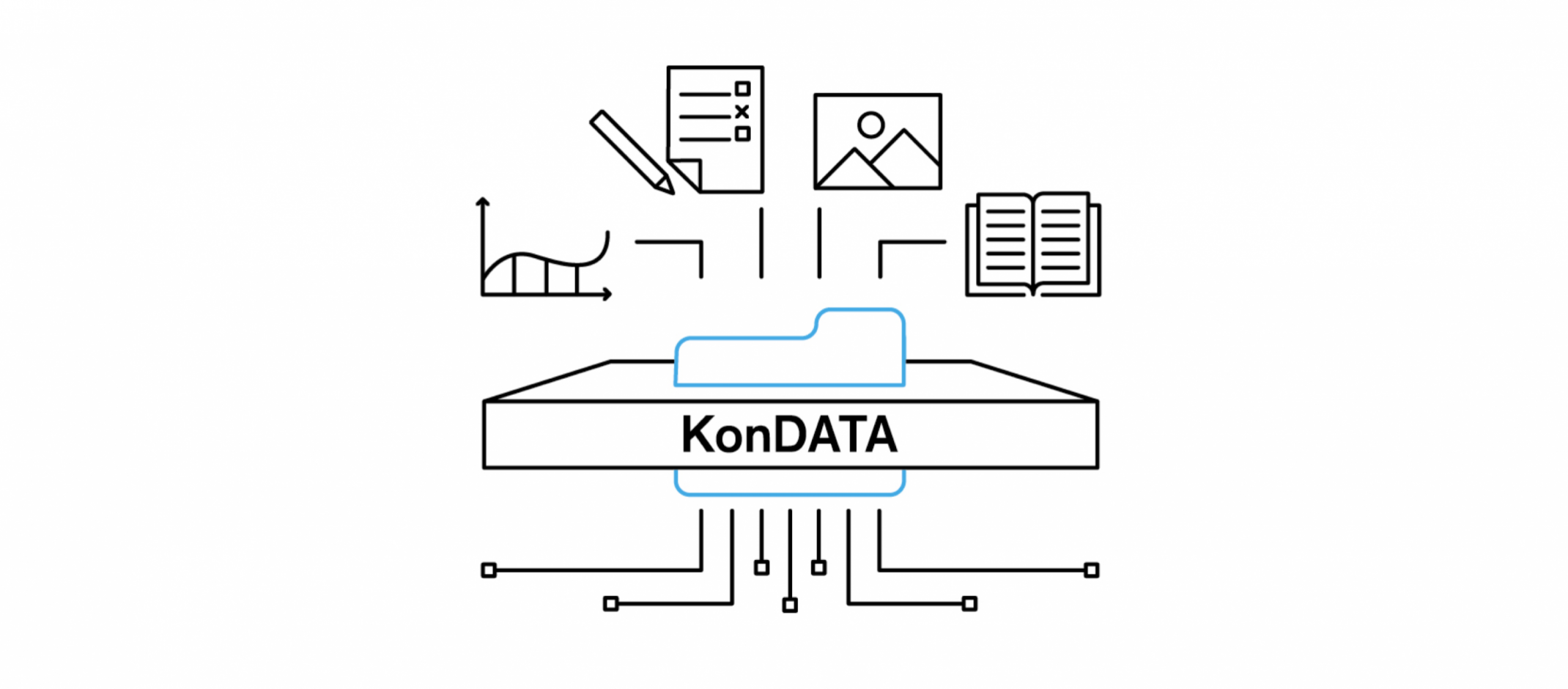KonDATA: platform for open research data

Research is time-consuming. Usually extensive studies and experiments are required in order to carry out a research project. It is not unusual for researchers to spend weeks in the laboratory taking highly precise measurements and ruling out errors. In the social sciences, surveys are conducted with sometimes thousands of respondents. Collecting such research data is tedious and lengthy, but necessary: A precise data basis is essential for significant research results.
Trend towards Open Science
The good news is: The times when research groups only collected data for themselves are increasingly over. Research data are now often made public and shared across universities and countries. They are made available to other research teams working on the same topic so that the same lab analysis or population survey does not have to be carried out two or three times. At the same time, free publication makes research more transparent since everyone has access to the data it is based on. This idea – making research data and results freely available – is part of the "Open Science" concept. Increasingly, making research data available to the general public is also a condition of research funding programmes.
Publish research data – but where?
Actually, making research data publicly available is not quite as trivial as it first appears. Firstly, research data may need a lot of storage space and powerful servers. Secondly, they should be published in such a way that they can be easily found internationally and cited according to uniform standards. Thirdly, the content and context of the research data must be documented precisely and comprehensibly. Under what conditions and influencing factors were the laboratory measurements carried out? Which population groups were surveyed, and which were not? Well-documented information about framework conditions and metadata are crucial so others can re-use research data. After all, other research groups need to know exactly what data they are working with.
"The expansion of research data management is an important pillar in the context of the university's Excellence Strategy measures. For me as a researcher, KonDATA is a low-threshold offer for the publication of data, comprehensively supported by KIM's advisory competence."
Professor Christine Peter, Vice Rector for Sustainability, Information and Communication Technology (CIO) at the University of Konstanz
KonDATA, the research data repository of the University of Konstanz
This is where KonDATA comes into play, the research data repository of the University of Konstanz. The service offers Konstanz researchers an easy and convenient way to publish their research data in a visible and citable form. KonDATA guarantees long-term storage of the data on the servers of the University of Konstanz. The shared research data are made available to the public under an open licence. The authors retain full rights over their data.
Data published in KonDATA are assigned a Digital Object Identifier (DOI). This way they can be identified and cited globally and permanently. Researching the data is not only possible via the KonDATA website. In addition to that, the search information is transferred to relevant meta search engines and is then visible, for example, in the Data Citation Index in the Web of Science, making the data easy to find internationally.
The University of Konstanz recommends its researchers give priority to using subject-specific repositories for publishing their research data. However, in cases where this is not desired or not possible, KonDATA is a very good alternative.
Part of the university's e-science strategy
KonDATA is a service provided by the Communication, Information, Media Centre (KIM) at the University of Konstanz in collaboration with FIZ Karlsruhe – Leibniz Institute for Information Infrastructure. The service is based on the FIZ's established repository software RADAR, which is run by the Leibniz Institute on the university's infrastructure.
"KonDATA adds a modern research data repository to the KIM service portfolio. Together with FIZ Karlsruhe we created a future-oriented solution that allows KIM to further expand its competencies in the field of Open Science for researchers".
Petra Hätscher, KIM director until 31 December 2021
The Open Science team at the University of Konstanz advises and supports researchers in using KonDATA. The team can be contacted for all questions concerning KonDATA, publication and the management of research data.
The research data repository KonDATA as a central service was established as part of the university's e-science strategy in the context of the German Excellence Strategy.
KonDATA is now available at: https://kondata.uni-konstanz.de/
